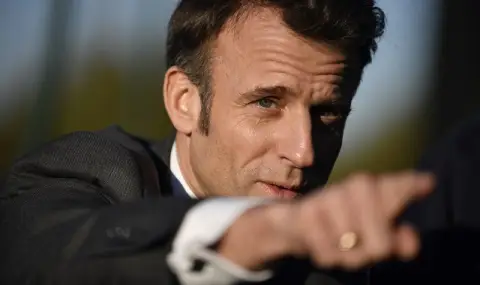Israel and Ukraine , two democracies - imperfect like most democracies - fighting for survival in the face of an enemy that would wipe them off the map, today have an identical problem with their Western allies. On the eastern front, military aid from Europe and the United States began to dry up. It may even end abruptly after the American election. On the southern front, solidarity with Israel, a year after the worst massacre of Jews since the Holocaust, has been questioned by several European countries, notably France. This is what political analyst Isabel Lasser writes in her material for the French daily Le Figaro.
For the second time in a week, Emmanuel Macron called for "stopping arms exports" for Israel. Speaking in Cyprus at a summit of EU-Mediterranean countries, he said cutting off arms sales was "the only lever" that could "put an end" of the war in Lebanon. On October 5, two days before the anniversary of the massacres carried out by "Hamas", he had already judged it necessary to "stop the supply of weapons" for the Jewish state to facilitate the return of a political solution to Gaza. A year ago he proposed to create an "international coalition" against "Hamas" in solidarity with the Jewish state... France, although it exports weapons to non-democratic countries such as Saudi Arabia, Egypt or Qatar, does not sell them to Israel.
Its influence in the Middle East has melted and its capacity to influence US support for the Jewish state is almost nil. But above all, the French president gives the impression that he is targeting the wrong target by attacking Israel more than Iran, which is arming its terrorist militias in the region and helping Russia in its war against Ukraine, attacking Israel with ballistic missiles and would like to obliterate the Jewish state from the map. Criticism from Paris and several Western capitals about the Israeli army's excesses in Gaza and the West Bank or Netanyahu's arrogance was shared by the peace camp in Israel.
But the lack of criticism of "Hezbollah", which took Lebanon hostage, plunging it into war, supported the October 7 terrorist attack, attacked the Jewish state daily, and has always refused to implement UN Security Council Resolution 1701, which ordered her to withdraw from southern Lebanon, caused misunderstanding even among fierce opponents of the Israeli prime minister. The French president's position, as well as those of the presidents of Italy and Spain, also clashed in Germany, where Chancellor Scholz, pressured by opposition leader Friedrich Merz, leader of the CDU, went the other way, announcing that Berlin would step up supplies of arms for Israel.
Dividing Europe, encouragement for Iran, nod to "Recalcitrant France": by suggesting that the main problem is not terrorism by pro-Iranian militias, but weapons supplied to Israel, Emmanuel Macron, diplomat underlines, "risks fueling anti-Semitism, which in the last year has undergone a meteoric rise, reminiscent of the darkest times in Europe." As on the eastern front, Emmanuel Macron's initiatives in the Middle East undoubtedly have the laudable aim of silencing the guns and bringing peace.
It is also true that the threats against Israel are accompanied by the assurance of the "unchangeable friendship" that unites France and Israel. But presidential statements lead to zigzagging diplomacy that is sometimes difficult to understand. Motivated by the mania for "at the same time", this diplomacy led, at the beginning of the war in Ukraine, long before the head of state stood at the head of the Kiev support camp, to relativize the threat from Vladimir Putin, symbolized by the expression: "Russia should not be humiliated." To spare the aggressor is also what Emmanuel Macron did when he commented on the elimination of Hassan Nasrallah, the leader of "Hezbollah", in an Israeli strike in Beirut in September, without recalling the victims of Shiite militia terrorists, nor the death of 58 French paratroopers in the Beirut bombing of 1983, nor the attacks that took place in France in 1985 and 1986, such as the one on the rue Rennes. Michel Barnier, the Prime Minister, paid tribute to them in his political speech...
If Europe and the United States demonstrate their differences over Ukraine, as they have over Israel, anti-Western forces will rally around Russia to accelerate a change in the global order. But with North Korea planning to send troops to fight in Ukraine, with Iran and China ramping up military aid to Vladimir Putin, the danger of "escalation" has been cited by Washington as an argument for banning Ukrainians from striking military bases in Russia with Western long-range missiles, or by Emmanuel Macron in his desire to limit Israel's military power, is becoming more discreet.
Limit arms supplies to Ukraine, limit arms exports to Israel. On both sides of the Atlantic, do diplomacy motivated by fear or domestic politics really serve the interests of democracies?
